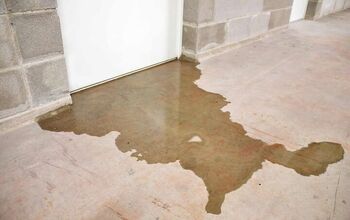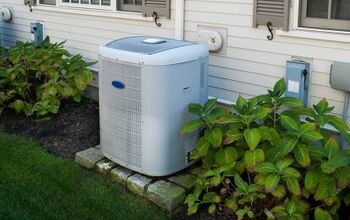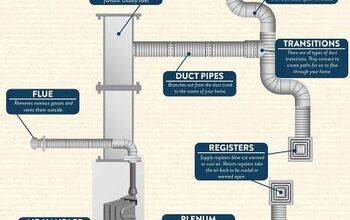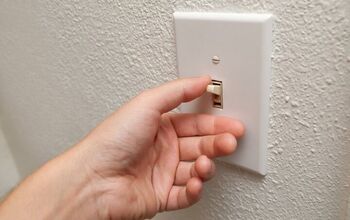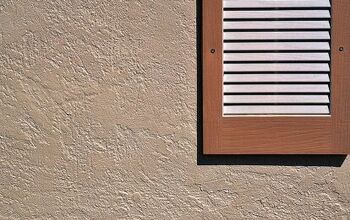Can A Landlord Look Through Your Stuff? (Find Out Now!)

As a tenant, it can be hard to understand your rights and what your landlord can and can’t do. One thing many tenants worry about is whether their landlord has the right to look through their belongings. Whether it’s during a routine inspection or a different situation altogether, can a landlord look through your stuff?
A landlord has the right to their real estate property, but they don’t have the right to your personal property. Your landlord can only look through your stuff if you signed a lease with terms saying they could do so. If you were evicted, your landlord might have rights to the belongings you left behind, depending on local laws.
Do You Need to Hire Movers?
Get free, zero-commitment quotes from pro contractors near you.

What Does A Tenant’s Right To Privacy Entail?
Landlords are generally not permitted to enter your home without advance notice unless it’s an emergency. An emergency would be a situation like a severe plumbing leak or a fire. In most cases, your landlord cannot look through your belongings while they are inside your home.
Most leases have a clause that allows for peaceful enjoyment of the property. This means that as long as tenants follow the rules outlined in the lease, the landlord won’t bother them.
What About Inspections?
Although your landlord may come in for an inspection, inspections don’t allow them to go through your things. Generally, leases allow for one or two inspections or reviews of the property each year.
Overall, landlords need to have a valid reason to enter your home, and they must provide proper notice. When performing an inspection, the focus should be on their real estate property, not on your personal property.
For example, your landlord cannot go through boxes, dresser drawers, or items in your closet. However, they can look in the closet to check for mold, mildew, and worn carpeting.
In this case, your landlord will typically ask you to move your items out of the closet ahead of time. This way, they can easily check for issues without disturbing your belongings.
What Can Landlords Look At During An Inspection?
During an inspection, your landlord can look at areas of concern and anything that has to do with proper maintenance. This could be cabinets under sinks (to check for leaks) or inside closets (to check for mildew and worn carpeting). Some landlords may check for bedbugs or look under the bed to assess the carpet condition.
The goal of the inspection is for your landlord to check on their assets and ensure everything is in working condition. They may also change air filters and complete other regular maintenance measures during the inspection.
Under What Circumstances Can A Landlord Go Through Your Things?
There are generally only two circumstances in which a landlord is allowed to go through your personal belongings.
When It’s Covered Under Lease Terms
Let’s say it is stated in the lease that your landlord can look through your things. If you signed the lease, you agreed that your landlord could go through your belongings. This is why it’s very important to read through the lease thoroughly before signing it.
After You’ve Been Evicted
If your landlord evicts you, local law dictates what will happen to any belongings you don’t take with you. In some cases, a local sheriff will take your things to a secure location.
In other cases, your landlord is required to hold on to your personal property for a certain amount of time. During this period, you are typically allowed to pick up your possessions. But after this time has passed, your landlord can keep, sell, or throw away your belongings.
Can A Landlord Move Your Belongings While Showing The Property?
If you plan to move out once your lease has ended, then your landlord will likely show the property. This will happen while you are still living on the property, so your personal property will be present. But even if your landlord is showing the property, they cannot touch or move your belongings.
In addition, your landlord generally must let you know in advance if they will be showing the property. This will give you a chance to move any valuables that you don’t want potential renters to have access to.
What Can Tenants Do To Enforce Their Right To Privacy?
A tenant’s right to privacy can be complex and confusing at times. Generally, the best way to handle a breach of privacy is to speak with your landlord directly. It’s ideal if you can resolve the situation amicably so that you can finish out your lease.
Speak Face-To-Face Or Send A Letter
Tell your landlord that you’re aware of your rights and explain which of their actions constituted a breach of privacy. If your landlord isn’t responsive to a friendly approach, a written demand letter is the next step. The demand letter should detail any grievances and explain how your landlord is violating your rights.
The letter should also clearly state the actions you will take if your landlord continues to invade your privacy. These actions could include a small claims lawsuit.
File A Small Claims Lawsuit
You may be able to file an invasion of privacy claim. Other options are suing for trespassing based on unauthorized entry or breach of the quiet enjoyment of your home. Infliction of emotional distress is also an option if your landlord harassed you.
However, unless your landlord repeatedly violated your privacy, it’s not likely that you’ll receive substantial compensation. It’s wise to consult an attorney before filing a claim.
Send A Cease And Desist Notice
If your landlord has violated your privacy, you can send them a cease and desist notice. You’ll want to send it as registered mail and require a written response. Get both the notice and the response notarized so you have official documentation.
Break Your Lease
Moving out and breaking your lease is generally seen as a last resort. In this situation, you can argue that you don’t need to pay further rent due to the invasion of privacy. You can also mention your right to quiet enjoyment of your home.
Depending on your particular situation, you might be able to classify your landlord’s behavior as a “constructive eviction.” This is when you are deprived of the use and enjoyment of the property due to your landlord’s wrongful acts.
What Can You Do If Your Landlord Damages Your Belongings?
If your landlord damages your belongings, they need to fix or replace them. Then, if they refuse to pay for repairs, you can sue them in small claims court. If the items were damaged when the landlord entered your home without a valid reason, you could also sue for harassment.
Landlords can tell you that you must remove your property from the premises, however. This often takes place with non-mobile vehicles that are parked on the property. After 30 days, the landlord then has the right to dispose of the unwanted item.
Do You Need to Hire Movers?
Get free, zero-commitment quotes from pro contractors near you.

Related Questions
Can a landlord enter without permission?
Laws and regulations regarding landlords entering leased property without permission can vary from state to state. However, it is not legal for landlords to enter without permission or without providing advance notice in most places.
Can a landlord evict you for no reason?
In most locations, landlords cannot evict you for no reason. They can evict you for issues like failing to pay rent or keeping a pet without permission. Typically, if you have followed all the terms of the lease, your landlord cannot evict you.
Can a landlord look through your windows?
Whether a landlord can legally look through your windows is a bit of a gray area. What if they’ve been knocking on the door and looked through a window to see if you were home? That may be permissible.
But what if your landlord attempts to look through your bedroom or bathroom window? That would be considered an invasion of privacy and is usually not permitted.

With a lifelong passion for writing plus strong enthusiasm for home improvement and DIY projects, joining the team at Upgraded Home was an easy choice. Jessica Allen likes to share helpful information with current and aspiring homeowners. Aside from writing, Jessica loves doing yoga, playing the piano, and dabbling in graphic design.
More by Jessica Allen















